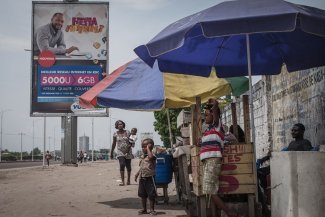President Richard Nixon had a variety of reasons for making his historic trip to China in 1972, ushering in a new era for US-China relations.
“We’re doing the China thing to screw the Russians and help us in Vietnam and to keep the Japanese in line,” he told his national security advisor, Henry Kissinger, in July 1971.
At the same time, something else was also being recognised, some 22 years after the Chinese revolution: the country’s independence was no longer reversible.
Unfortunately, Washington has not yet come to the same conclusion with regard to Latin America, and especially South America, whose ‘second independence’ is perhaps one of the most significant geopolitical events the world has seen in the last 15 years.
The region’s shift to the left, and the independence consolidated by its leftist governments, is still viewed as a temporary change that can be reversed.
Obama promised “a new start” at the Summit of the Americas in Trinidad and Tobago in April 2009. But his team threw cold water on the idea within 24 hours and it became clear that there would be no imminent change in policy.
Still, all hope was not lost – until the military coup in June 2009 against the democratically-elected president of Honduras. The various measures taken by the Obama administration to consolidate the success of the coup, and legitimise it through elections that no-one south of the US border was prepared to recognise, provoked renewed tension between Washington and the rest of the region.
The US administration’s refusal to recognise the Venezuelan elections in April of this year, despite the clarity of the results and in stark opposition to the rest of the region, was a sign of aggression not shown by Washington since its backing of the coup in 2002.
It provoked a torrent of condemnation from South America, including from Brazil’s former and current presidents, Lula da Silva and Dilma Rousseff.
Less than two months later, the US Secretary of State John Kerry moved to ease the tensions by meeting with his Venezuelan counterpart Elías Jaua.
It was the first meeting at this level in memory and an implicit recognition of the election results.
The sense of renewed hope was soon frustrated, however, when a number of European governments, clearly acting on behalf of the United States, forced down the airplane of President Evo Morales in July.
“They are all, definitively, crazy!” tweeted President Cristina Fernández de Kirchner of Argentina. UNASUR (the Union of South American Nations), likewise, expressed its unequivocal condemnation. The blatant violation of international law and diplomatic protocol was yet another display of Washington’s lack of respect for the region.
There are a number of structural reasons behind the Obama government’s repeated refusal to accept the new reality.
Obama may want better relations with the region, but he is not prepared to spend any more than loose change in political capital to achieve his purpose.
It is not enough. When he tried to appoint an ambassador to Venezuela in 2010, for example, Republicans (including the office of then senator Richard Lugar), succeeded in thwarting the attempt.
For President Obama, there is no electoral fallout from poor relations with Latin America. Unlike Afghanistan, Pakistan, Syria and other potential warzones or areas of armed conflict, there seems to be little imminent danger of anything blowing up in his face and causing political damage to his government or party.
The main source of electoral pressure comes from those wanting more forceful opposition to the left-wing governments, such as the Cuban-American right and its allies in Congress who currently dominate the House of Representatives.
Most of the foreign policy establishment has absolutely no interest in the region; those who do largely believe that the shift to the left is a fleeting incident that should be reversed. And this would appear to be Washington’s objective in the hemisphere: to finally rid itself of the left-wing governments.
In the meantime, the US is expanding its military presence where it still has control (in Honduras, for example), readying itself to support the overthrow of leftist governments as soon as the opportunity arises (like in Paraguay last year).
For all these reasons and more, there has been a notorious inertia and uniformity in the (failed) policy towards Latin America over the last 15 years, despite the profound and historic changes in the region.
This inertia and uniformity are reflected in the absence of any debate about policy on Latin America among Washington’s established foreign policy circles, including in the press.
Until the day the United States has a government that really transforms its vision of Latin America, a government that sees the region as a partner rather than as the ‘backyard of the United States’ – as it was unfortunately referred to by Secretary of State John Kerry in April – there is no reason to hope for much of an improvement in relations between the US and Latin America.
This article was originally published on the website of the Agencia Latinoamericana de Información (ALAI) .








